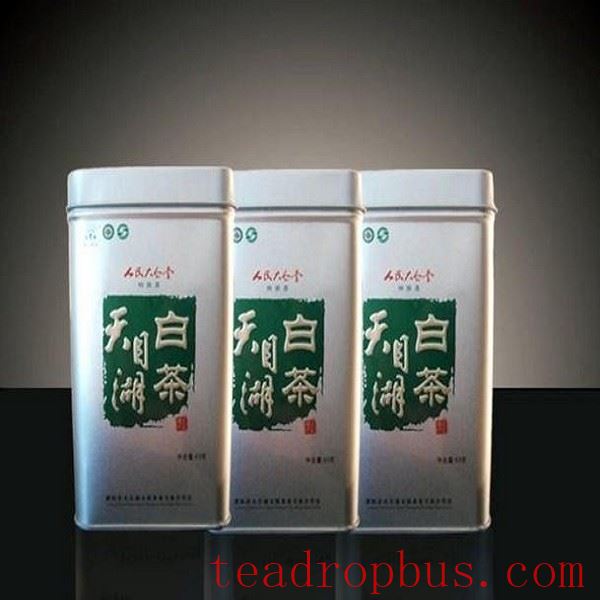
Basic Introduction to Tianmu Lake White Tea
The origin of Tianmu Lake White Tea is located beside the Nan Shan Bamboo Sea in the Tianmu Lake Tourist Area, which is in a hilly area on the northern edge of the subtropical zone. The city of Liyang has a long history of tea production and is known as a “Tea Village.” In 1999, the city introduced white tea and established its own brand, Tianmu Lake White Tea. The resulting tea has a uniquely high aroma, a clear and pure broth, and a sweet aftertaste, making it a precious variety.
Nutritional Value
The unique processing method of Tianmu Lake White Tea largely preserves the nutritional components of the tea leaves. The antioxidant capacity of white tea is ten times that of Vitamin E. Tianmu Lake White Tea is rich in trace elements such as manganese, zinc, and selenium, as well as vitamins A, C, B, E, and K. It also contains tannic acid, lipopolysaccharides, fatty acids, Caffeine, dibenamine, polyphenolic compounds, and several polysaccharide complexes. The fluoride content is also very high, and the processing process generates a-aminobutyric acid. White tea contains essential active enzymes that can promote fat metabolism, effectively control insulin secretion, decompose excess sugar in the blood, delay the absorption of glucose from the intestines, and help maintain balanced blood sugar levels. People who frequently drink white tea during summer are less likely to suffer from heatstroke due to the multiple amino acids in white tea that have fever-reducing and detoxifying effects.
Dr. Milton Schiffenber of Pace University in New York and his research team added white tea to toothpaste and applied it to a bacterial culture in an experiment. They found that the toothpaste mixed with white tea showed significantly enhanced antibacterial properties. Therefore, he believes that drinking white tea helps keep the mouth clean and healthy. In summary: white tea has various benefits, including clearing the liver and eyesight, strengthening teeth, lowering blood pressure and blood sugar, alleviating depression and aging, protecting against radiation and pathogens, invigorating the mind, and prolonging life.
Product Characteristics
Tianmu Lake White Tea has been approved for the National Agricultural Product Geographic Indication Registration Certificate. Its leaf veins are green and the leaf buds are jade white; the shape is even and covered in gold; it looks like phoenix feathers, and the broth resembles jade liquid; it is fresh, refreshing, and leaves a lingering fragrance in the mouth.
History and Folk Customs
White tea has a long history and has always been considered a precious variety. It has existed for over eight hundred and eighty years. In “Da Guan Tea Treatise,” Emperor Huizong of Song dedicated a section to white tea, stating: “White tea is a unique type, different from regular teas. Its branches are spread out, and its leaves are translucent and thin. It occasionally grows between forests and cliffs, not something that can be cultivated by human effort. Only four or five families may possess it, with only one or two plants each. The quantity produced is limited to just two or three baskets. The number of buds is small, and they are particularly difficult to steam and dry. If the temperature and moisture are not controlled properly, the tea will become ordinary. It requires meticulous processing and proper handling to ensure that the tea is as transparent as jade within its stone, and nothing else compares. There is also a lightly baked version, but it does not match up in quality.”
Awards and Honors Received by Tianmu Lake White Tea
Tianmu Lake White Tea has won awards for its superior quality, including the Gold Award at the Shanghai International Tea culture Festival in 2004 and 2005, the First Prize of the Lu Yu Cup in Jiangsu Province, and the award for Excellent Agricultural Products in Changzhou City, Jiangsu Province. In 2007, it won the top prize in the “Zhong Cha Cup” competition. It was selected as the designated tea for the first Tianmu Lake Tourism Festival and later chosen as the special tea for the Great Hall of the People. On the eve of the opening of the 2010 Shanghai World Expo, Tianmu Lake White Tea, produced near Tianmu Lake in Liyang, China, showcased its charm and ranked among the top ten famous teas at the expo and became the official tea of the United Nations Pavilion at the Shanghai World Expo.